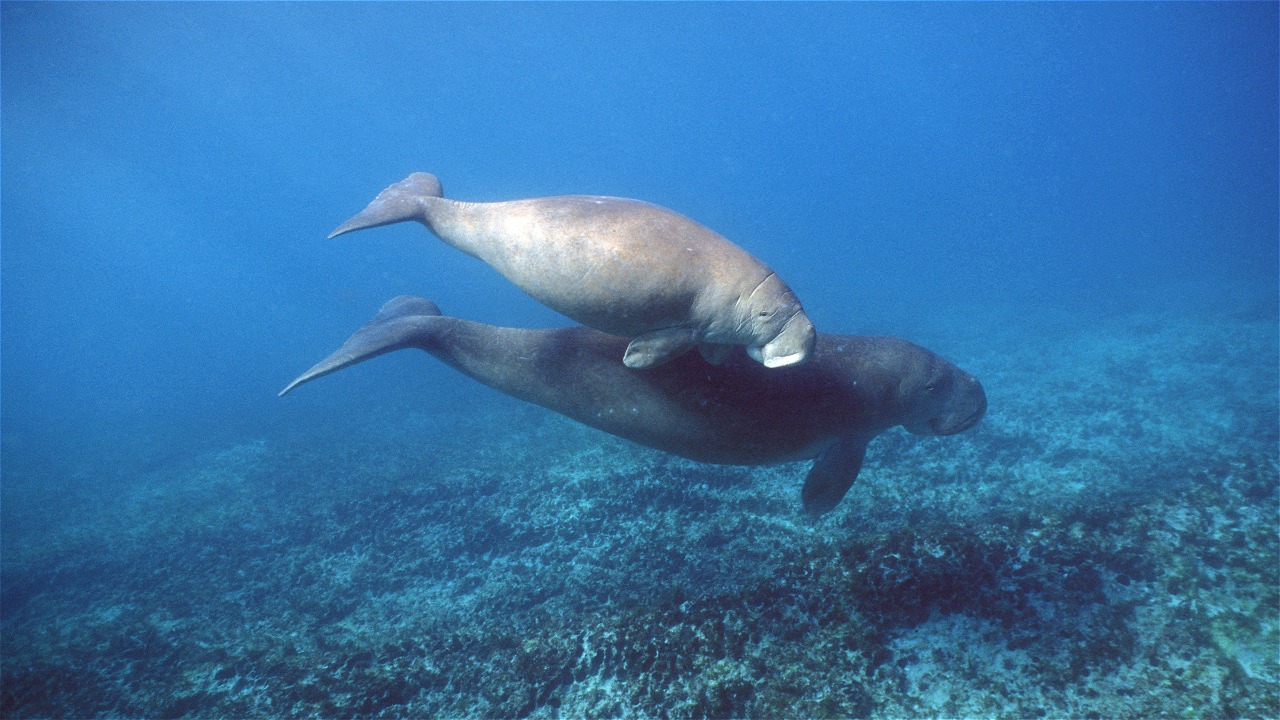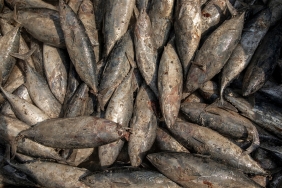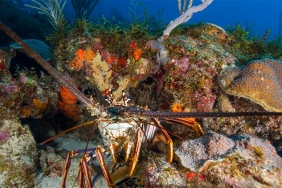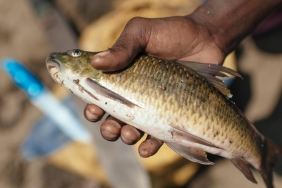"LET'S MANAGE," AN INVITATION TO ENCOURAGE DUGONG AND SEAGRASS CONSERVATION EFFORTS IN ALOR
By: Nisa Syahidah (Sunda Banda Seascape Communication & Campaign Assistant, WWF-Indonesia)
The Alor sun was blazing that afternoon (28/11) as Pak One pushed his colorful boat (katinting) out to sea. Arifin Putra and the WWF-Indonesia crew followed behind him, preparing to board the boat to visit Mawar, a dugong (Dugong dugon) that inhabits seagrass habitat in the waters of Mali Beach, Alor Regency.
From Mali Beach, we could see airplanes taking off because it is only limited by the airport fence. On the other side, the white sand tongue of Sika Island shines in the sun. In the core zone of the Pantar Strait Aquatic Nature Reserve (SAP) and its surrounding waters, Pak One and the Kabola Fishermen's Forum, which he heads, have turned the haunted island of Sika into a conservation island, with a dense mangrove forest and several bungalows. Mali Beach is getting more and more crowded, especially with the presence of Mawar, a rare marine mammal that grazes Mali's seagrass beds every day.
According to the International Union for Conservation of Nature (IUCN) criteria, dugongs are classified as vulnerable ("Vulnerable") to extinction. Unfortunately, tourism pressure for this protected biota is getting higher. Meanwhile, public understanding and legal basis regarding dugong protection are still not strong. For this reason, the Dugong and Seagrass Conservation Project (DSCP), sent its ambassador, Arifin Putra, to raise the issue of dugong management to the surface, one of which is through video.
In accordance with the code of conduct for interacting with dugongs being developed by WWF-Indonesia, the shooting was done with only two small katinting - the most number of boats recommended.
"Mawar.... Mawar, you have a guest." Called out by the handler, it wasn't long before Mawar was on the move, swimming around the boat while occasionally returning to the water to feed on seagrass with her distinctive body movements.
No one got off the katinting, no one swam with Mawar, let alone touched her. The film crew shot Mawar from the boat, using its dome, groping for where Mawar might be. Mawar's entire attraction is enjoyed from the top of the katinting. This is part of the code of conduct which will continue to be encouraged to tourists who come. To avoid disturbing the dugongs, tourists are also not allowed to take pictures using flash, make noise, and remove their limbs from the boat.
"Although the dugong in Alor seems friendly, it is still a wild animal," said Arifin. "This code of conduct is needed not only for the safety of the dugong, but also our safety in traveling," he continued. Visitor education is echoed by Mr. One day after day as he brings guests who want to see Mawar in the seagrass beds of Mali.
Fortunately, Mr. One is not struggling alone. Arifin also heard the story of the fisherman's struggle from Mr. Yusuf, a member of the Mail Maha group. He is not just the owner of Leli Cafe & Guest House where we unwind in the middle of filming with glasses of iced tea without plastic straws. Mr. Yusuf and the Mail Maha Fishermen's Group help protect Mali's waters by committing to protecting the sea and regulating the reporting of andon fishermen who come to Mali's territorial waters.
WWF will not let these community activists struggle alone without assistance. It feels like we can still hear Mama Martha's voice reciting the lyrics of the song that was passed down years ago by one of WWF's staff in Alor. Inviting all to participate in managing coastal ecosystems that support human life in the Pantar Strait SAP and surrounding waters.
"Come one, come all, let's manage
Regulate fishing gear and fishing techniques
Set the quota and number of fishermen
Come on, come on, let's manage"





